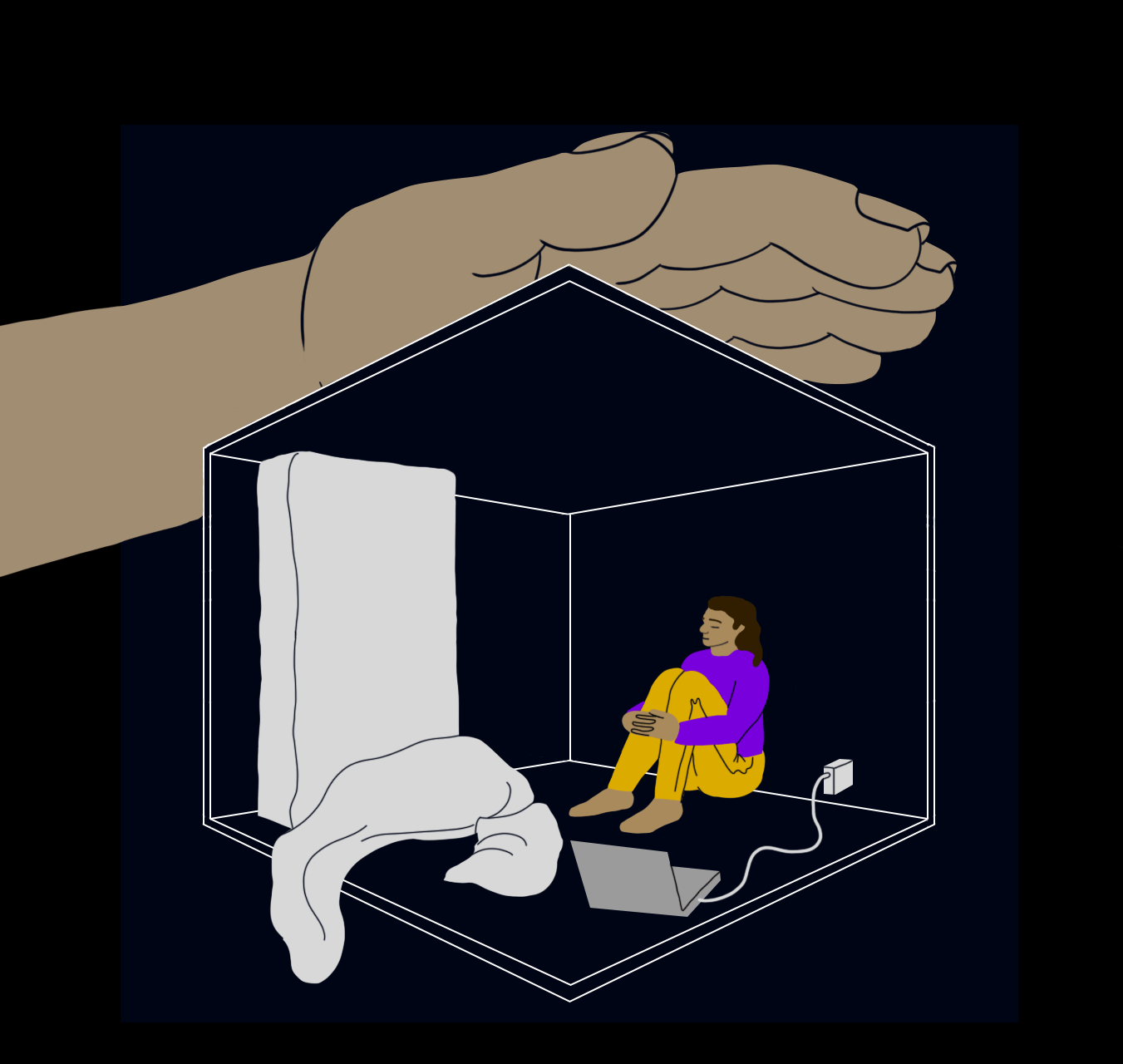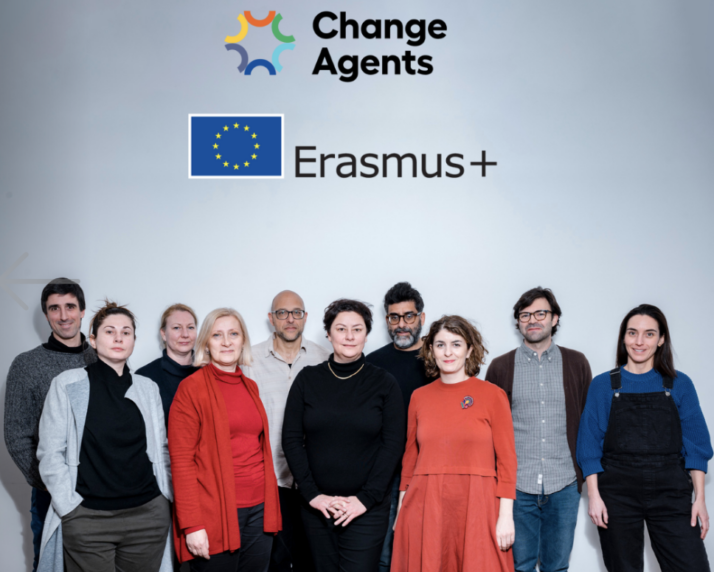KRISE TO GO #8 — Students
Observations and challenges during the COVID-19 pandemic by the research group inequality and digital sovereignty.
Also, many students lost their part-time job, which is an essential source of income to afford their studies and life. Thanks to university initiatives like the “Corona Nothilfe” of the Studierendenwerk, a state-run non-profit organization for student affairs, it is possible for students to receive financial support and attenuate at least one difficulty the pandemic has brought.
The American studies scholar, theater maker and author Simon Strick incisively reflected on the “Nicht-Semester” in March 2020 – at the beginning of the pandemic – in his article “Digitally Drunk”, criticizing the optimism about the online semester and universities that use the pandemic to finally become adequately digitally equipped instead of financially supporting students. It seems to be truer than ever and absurd how much has not changed in the context of the universities, e-teaching and learning more than one year into the pandemic. Strick writes:
“The Berlin municipal government voted to distribute €10 million immediately to Berlin universities in order to revamp the digital environments for teaching. It will probably be used for buying software licences, cameras, bandwidth, server space, IT-services, and all of that helpful stuff. […]
The ten million could’ve been used for new teaching personnel, renovations, Lohnerhöhungen [wage increases] for studentische Mitarbeiter [student assistants] (many of them IT-specialists), more office spaces, new books; let alone new research activities and projects, physical and mental health services for students and faculty, and so forth. My former department relied for most of its IT-services on a single studentische Mitarbeiterstelle [student assistant position] (Hi, Alon) to solve all their problems – I wonder what he is doing these days, or how he is doing it. My partner and I work with 4-6 year old computers I hustled from my university, bought on some project money that we both continue to use half-legally (thanks, Alon).
I only wish for the 5000 Euro the Berlin government has promised to freelancers. Hopefully it will come, hopefully many are «entitled» to receive it. Meanwhile, I am horrified that ten million in «higher education money» will probably for the most part go to supranational corporations giving a damn about climate change, participatory politics, democracy, or higher education”
Even the slightest bit of motivation that is left fades away by adding the uncertainty on how long this digital and detached way of studying will continue. All the fun stuff – “studying” in the cafeteria, weird exhibitions of fellow students, random encounters in university alleys – and the not so fun stuff – late hours in the library, the hangover from last night’s student party – disappear. And yet, it’s all those things that define the university years and life.
Many surveys report that the pandemic negatively affects the mental health of young adults. The “intolerance of uncertainty”, the increased feeling of loneliness and one and a half years of isolated remote studying will probably have a long-lasting impact on a psychological and physical health.
Student parents are faced with unique challenges adding to remote learning and closures of schools and day care centers. In the U.S., over two thirds of student parents live in or near poverty. Student parents have less of a cushion in the economic and health crisis of the pandemic. According to a brief from February 2021, students with children in Germany were more frequent to report that their living situation was unsuited to digital learning and that the pandemic had impacted their family relations.
The ongoing social restrictions and rising frustration about how the German government is dealing with the pandemic results in a steady increase of stress among students. Students (unless they qualify due to disability or occupation) fall into the last group to get vaccinated, so it’s still a long way until university life will return to a state of normality – what ever this will mean in the future. At least the recent positive developments in Germany in vaccination and case numbers give some hope that this will be the last completely remote semester during this pandemic.



